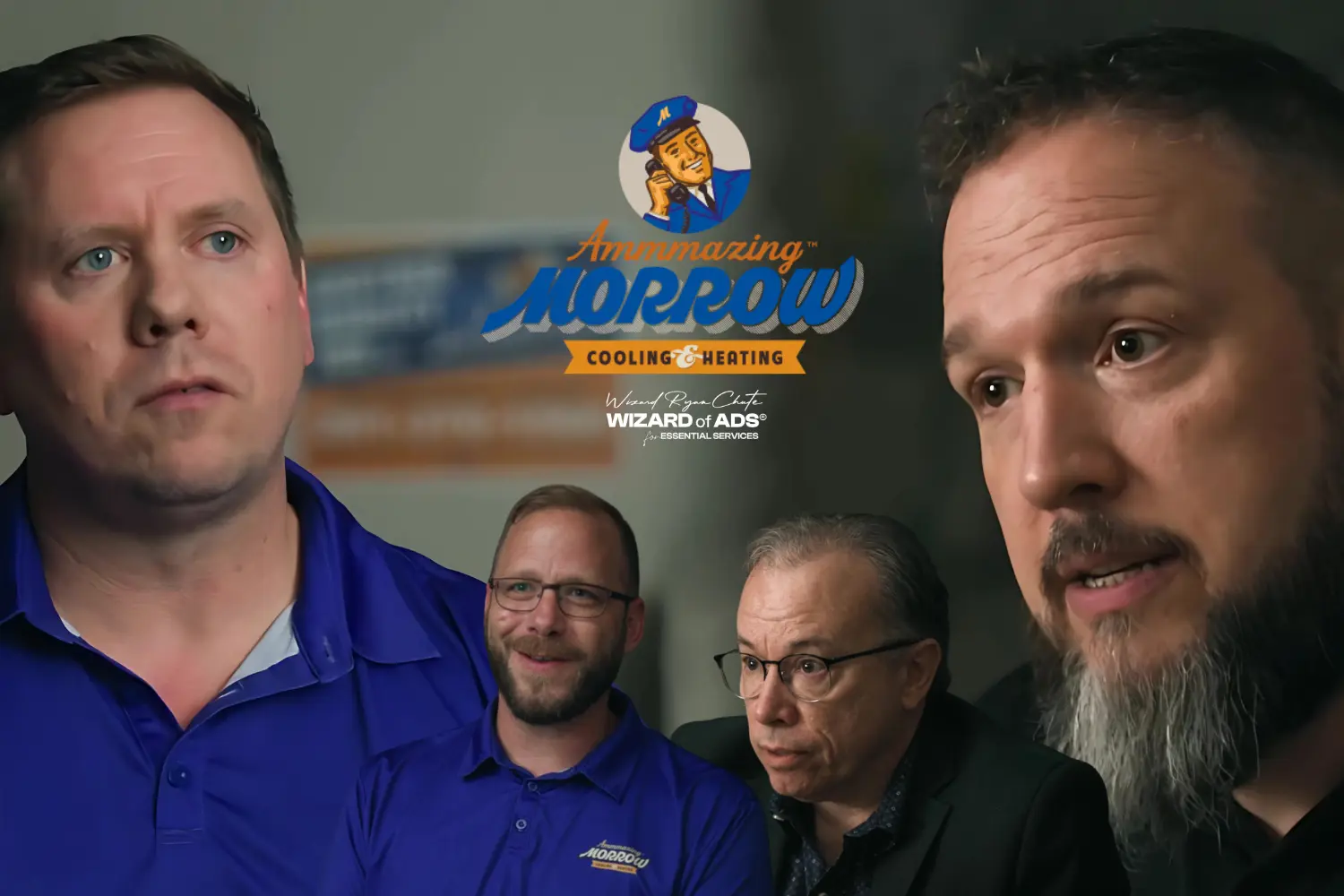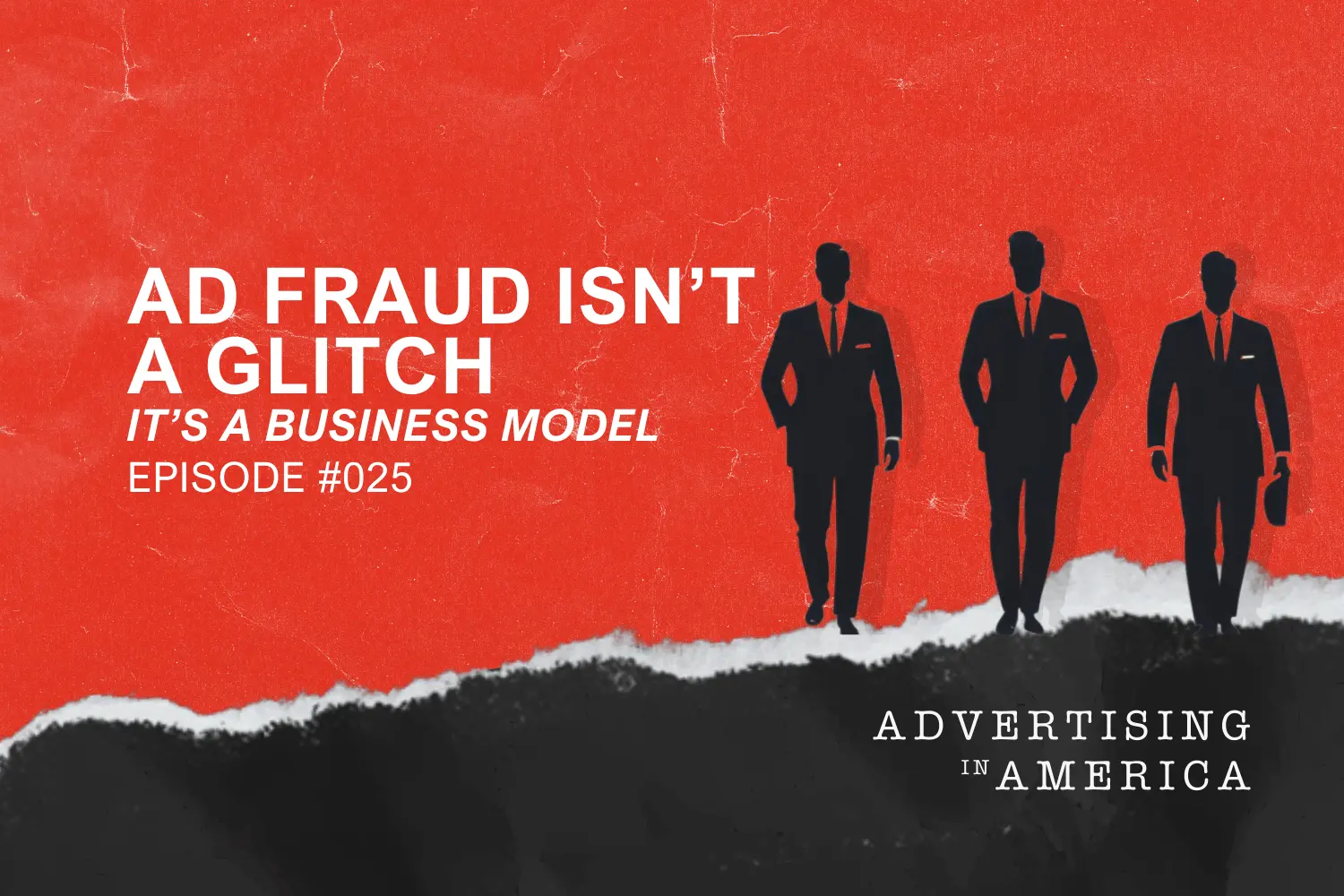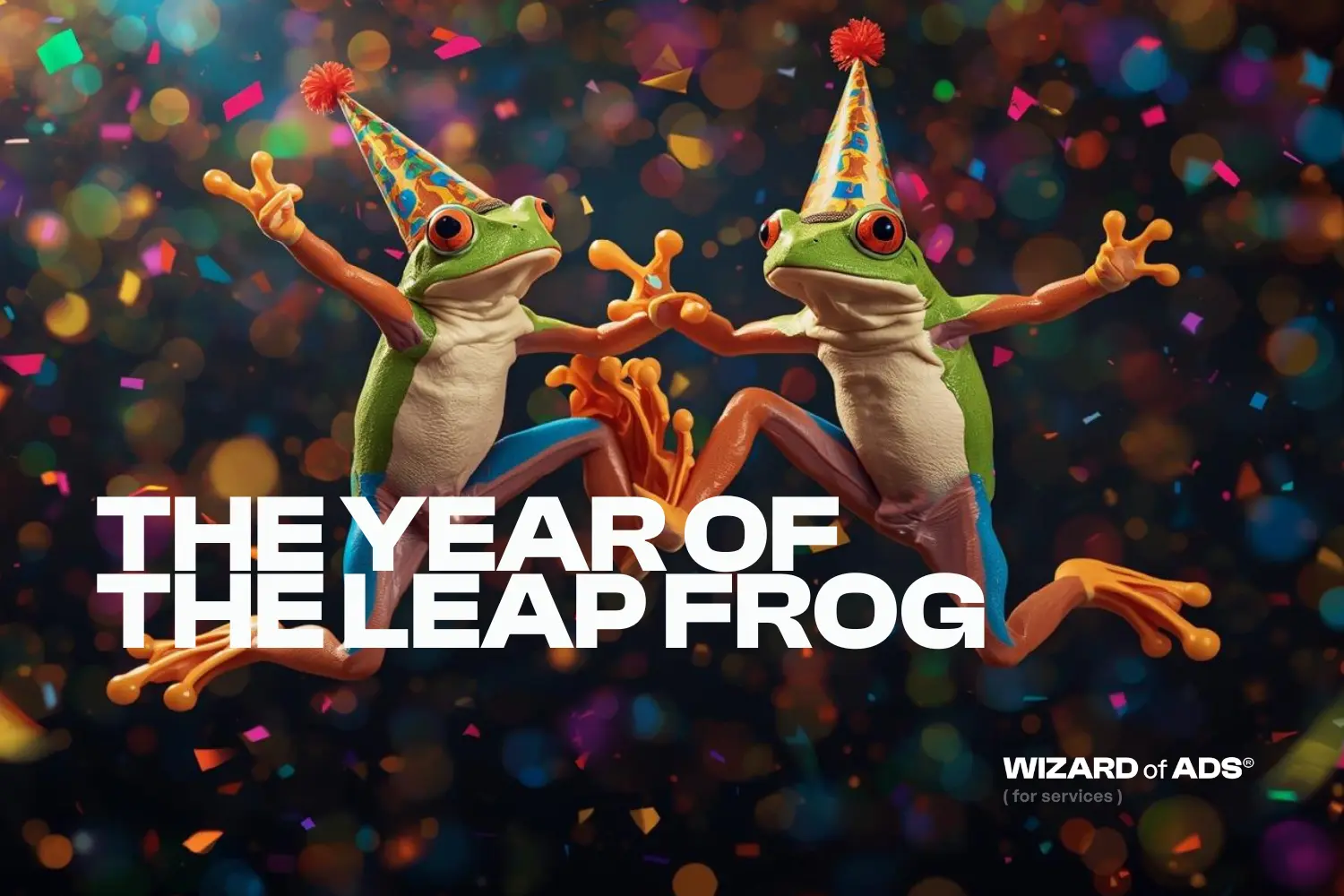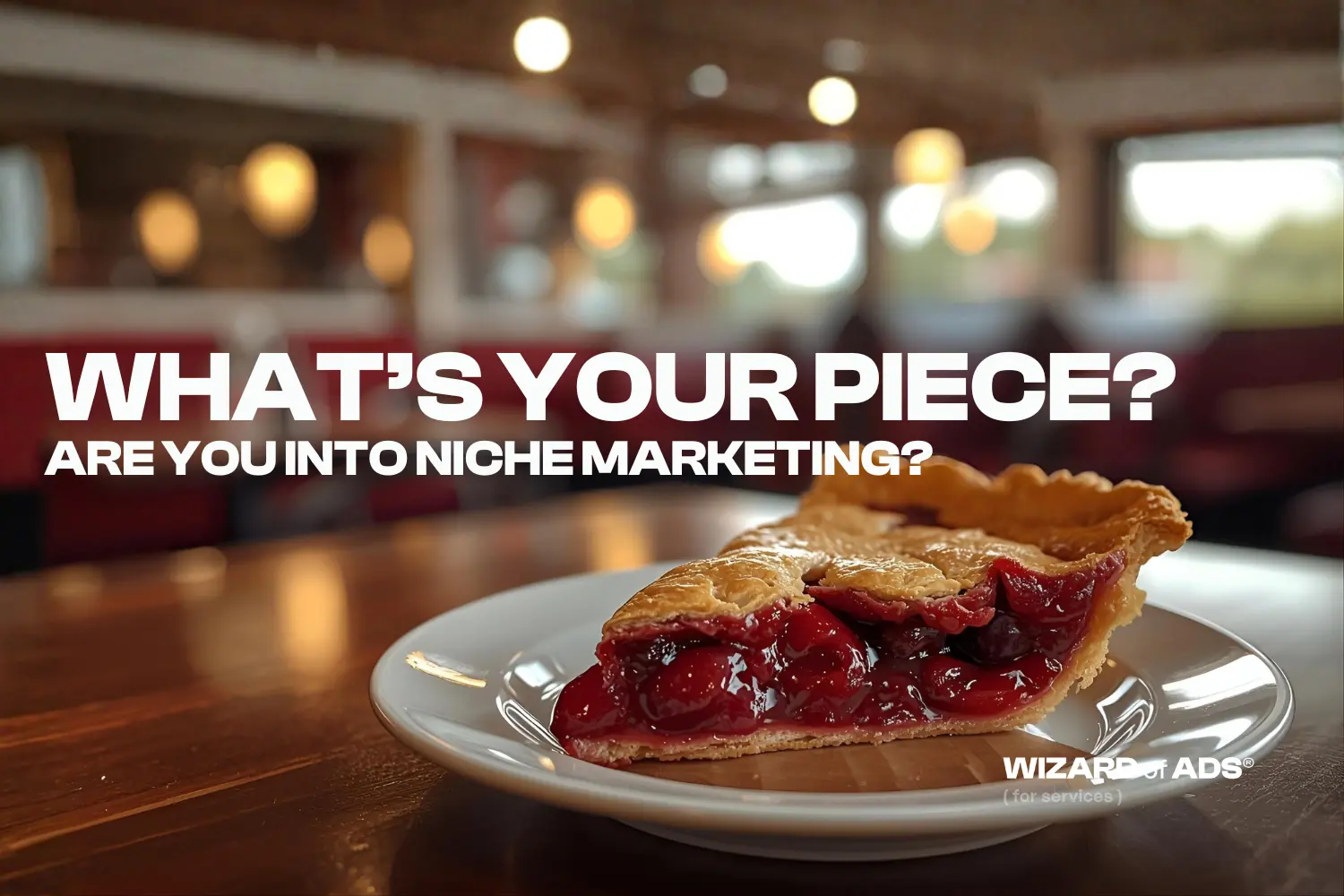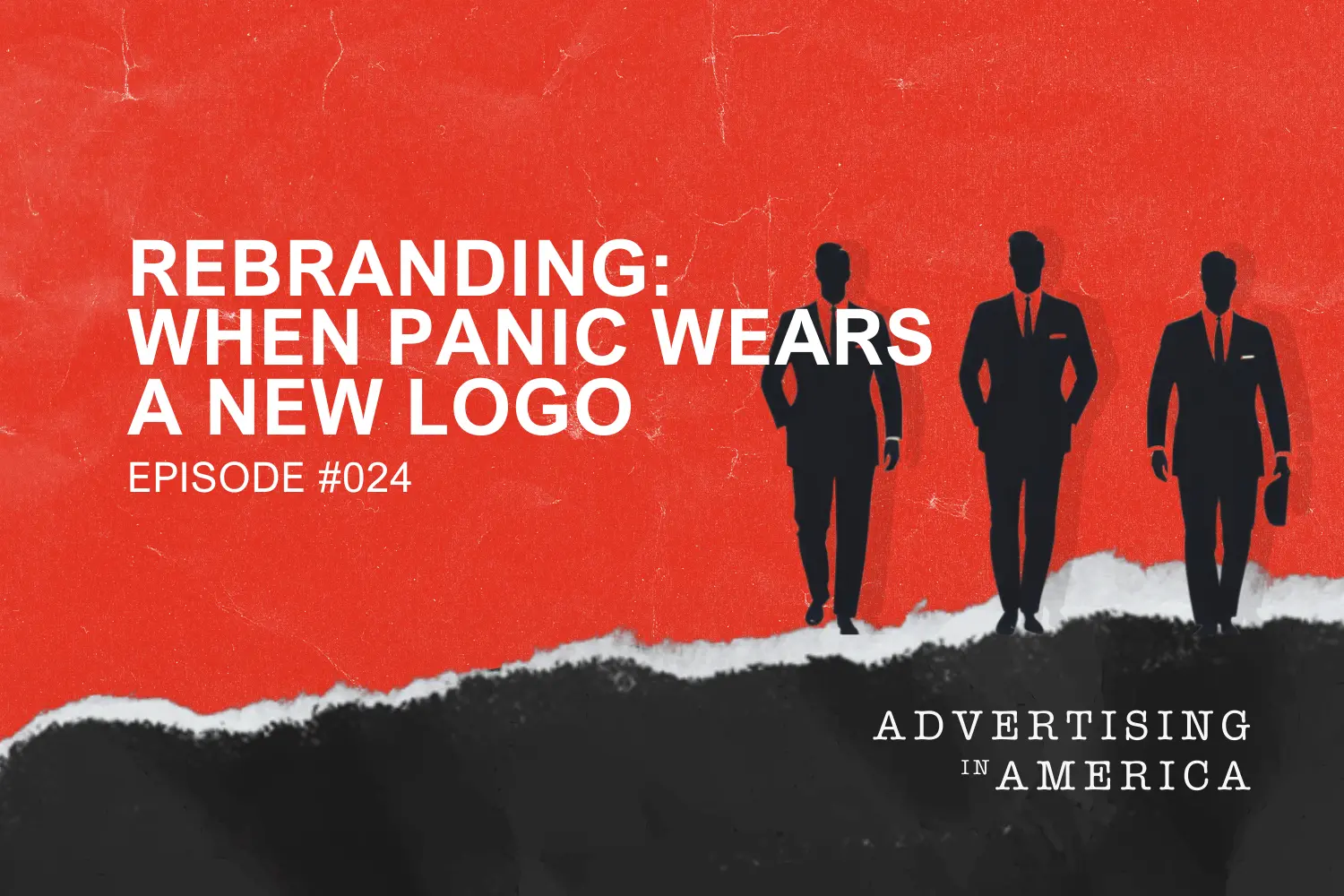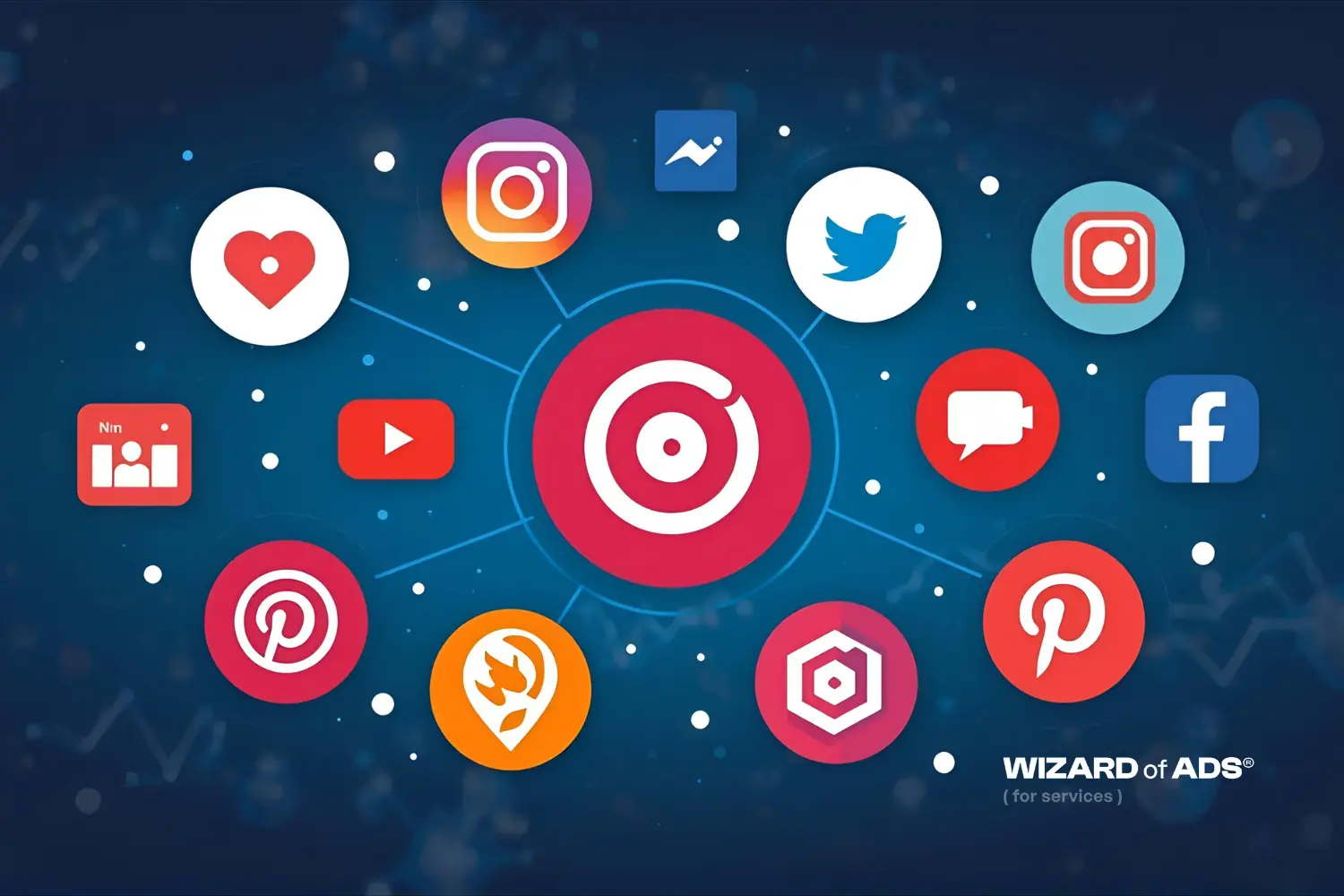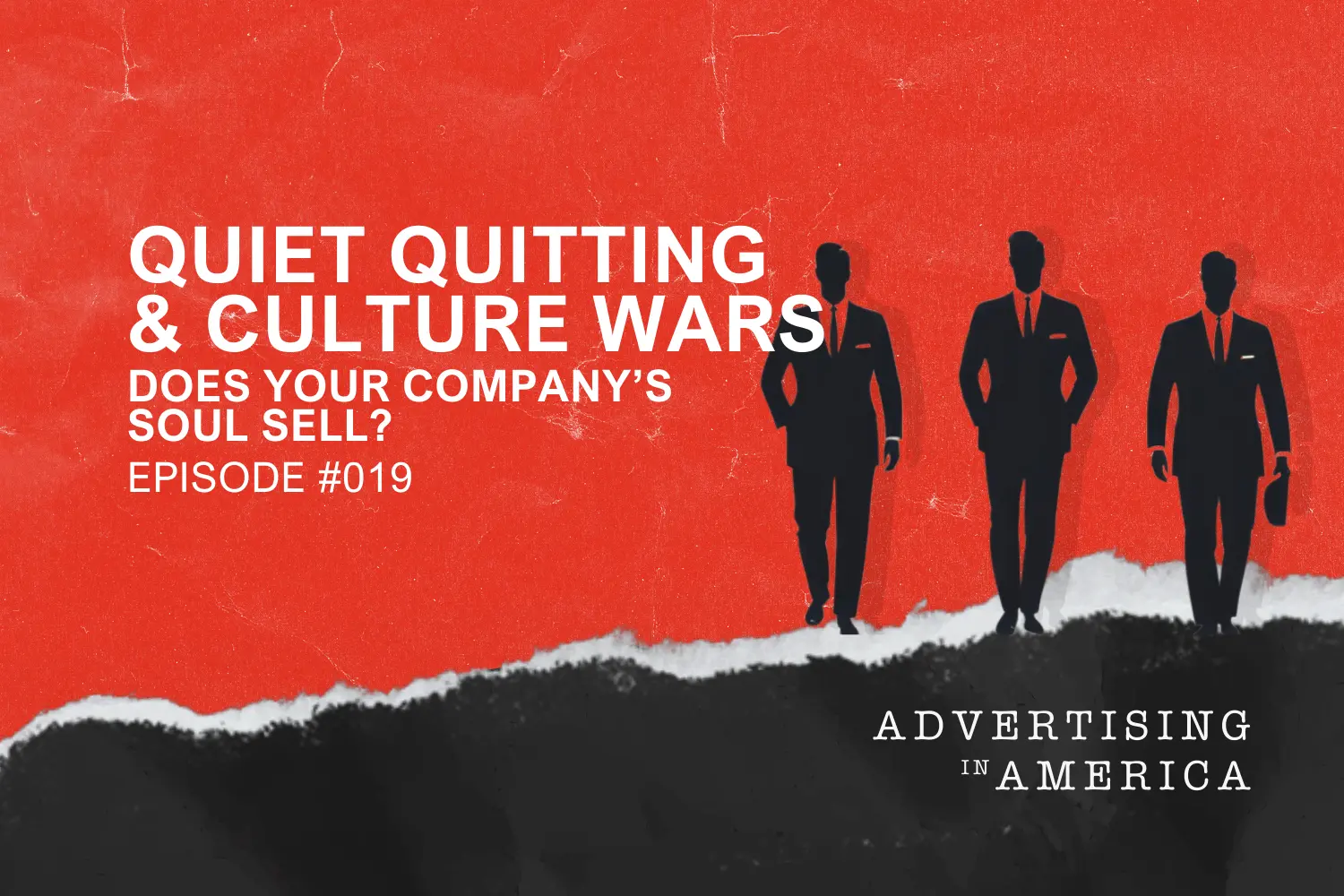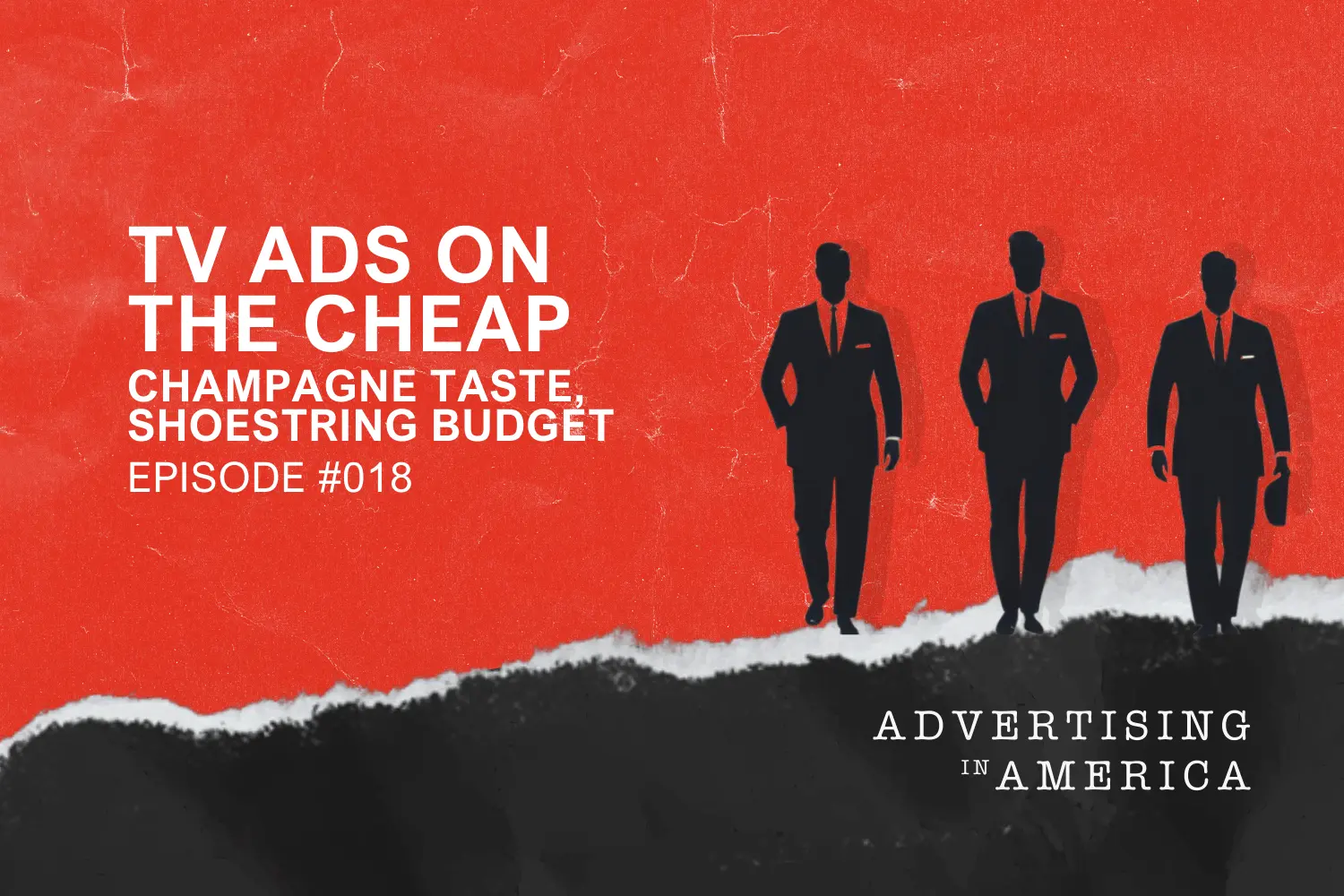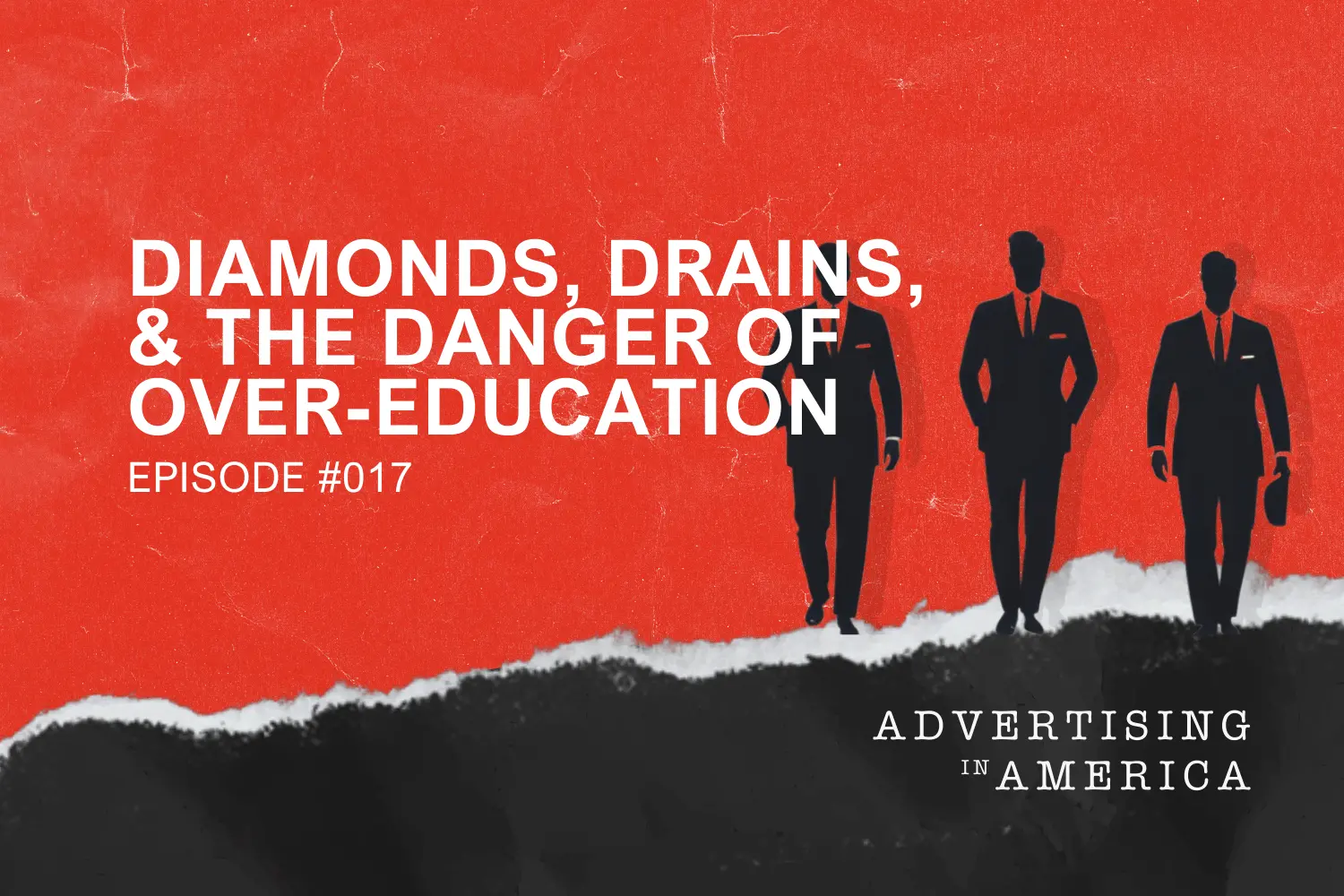
What happens when you think you're selling diamonds, but your customers are actually buying a moment?
In this tell-it-like-it-is episode, Ryan Chute sits down with Ad Wizards Mick Torbay and Chris Torbay to dismantle one of the most common—and costly—mistakes in business: confusing what you do with what you really sell.
From jewellers obsessed with gemology to plumbers keeping “No Poop on the Floor,” they unpack why clarity beats cleverness, why over-educating your customers is killing your ads, and how identity—not features—drives buying decisions. Along the way, you’ll get stories that will make you laugh, cringe, and rethink every line of copy you’ve ever written.
The boys trade jabs over the fine line between selling the emotional moment and telling people exactly what you can do for them. And they’ll show you how to strike that balance so your ads actually connect—and convert.
Episode Highlights
- Why customers aren't buying your product—they’re buying the moment it creates.
- The danger of "educating" instead of persuading.
- How to balance emotional storytelling with clear, literal offers.
- Real-world examples: from garage doors that sell saftey to drain company that sell relief.
- The "inside the bottle" trap that keeps business owners from seeing their true message.
Whether you’re a brand-builder, marketer, or business owner, this episode will sharpen your instincts, simplify your message, and help you sell the thing your customers actually want.
▶️ Tap in for the truth bomb—then decide: are you selling the thing, or the moment?
📱 Subscribe wherever you get your podcasts
💬 What’s the real business you’re in—and is it the same thing your customers think you’re in?
💥 Brought to you by Wizard of Ads for Essential Services
In today's episode of Advertising in America, we're going to debate what you think you sell versus what you actually sell.
Talk to a jeweller and ask what they do, and they'll tell you they deal in diamonds, gold, precious metals and gemstones. They can explain why a ruby can be blue and a sapphire can be red.
It's true, but the more you know about something, the more disconnected you become from those people who don't know anything about that something.
Stop trying so hard to sound smart. Advertising is about clarity. I say, be clear. Tell me one thing. What do you do? How can you help me? Too many companies try too hard to be too philosophical about what they do, rather than just telling me they're good at the one thing I need done.
You wanna have people agonizing over the ad and whatnot, then there are solutions. But at the end of the day, do what's right for you. Do it in a way that makes people feel something about you, not just know that you exist.
Ryan Chute: Let's get past the plastic surface and talk about what your customers really want from you to fight for what's right, not right in front of you. Here's Mick.
Mick Torbay: One of the things I agonize over, especially when I first meet a client, is determining what business they're really in. Sometimes I ask them, here's the funny part, you'd be amazed at how often the client does not know what business they're actually in.
Now, how is that possible? You'll find out right after this.
Nah, I'm just fucking with you.
Talk to a jeweller and ask what they do, and they'll tell you. They deal in diamonds, gold, precious metals and gemstones. Ask for their credentials, and they'll show you a diploma from the American Institute of Gemology.
They can explain why a ruby can be blue and a sapphire can be red. It's true, but the more you know about something, the more disconnected you become from those people who don't know anything about that something. So if you ask what business the jeweller is in, he'll give you an answer that's wrong. He thinks he's in the jewelry business, and he's not. And this is the danger of the jeweller. I remember when I was a young copywriter and I was meeting a client for the first time. He was a jeweller and a very experienced one. He was in his sixties, and it was a family business. This guy knew jewelry. And he says to me, “I know what we need to talk about in our commercials.”
Okay, that's kind of my job, but let's run with this. And what he said was, “I believe we need to educate the consumer.” Sidebar. This is a tremendous red flag business owners.
If you ever tell someone you need to educate the consumer, you're just about to make a horrible mistake. Consumers are not looking to be educated. If they want to be educated, they'll take a course, not watch TV, or listen to the radio to be educated by a commercial.
But back to the story, “what we need to do is educate the consumer on gemology, because if people knew more about gemology, they'd make better decisions in the jewelry store.” Now what he said was 100% true. If we knew more about gemology, we would make better decisions in the jewelry store. However, just because it's true doesn't mean it's relevant. When you work at a jewelry store every day and you buy and sell jewelry as your life's work, you begin to forget what it's like to not know a damn thing about jewelry, and that's the world you and I live in.
To operate a jewelry store, you need to run your business based on the quality and value of the product you're selling. Quality and value. Now, how often do you hear ads about that? Huh? But when you or I walk into a jewelry store, we're looking for something quite different. The fact that we know nothing about diamonds is completely irrelevant. We're here for one reason only. We want the love of our life to open up a box and say, “Oh my God, what have you done?” That's what we're buying. We're buying a moment. Remember the jeweller isn't even there when the moment takes place. He doesn't see that. My jeweller wants people to think of jewelry like he does, and we don't.
If we knew as much about jewelry as he does, we wouldn't buy it because we realize that golden gemstones are commodities, and we are not commodities brokers; we're entirely out of our league when it comes to the quality and value of jewelry. So the smart jeweller never brings it up. Buying jewelry is never a good financial decision.
Remember, a jeweller is a guy who will sell you something that costs $10,000, and all it does is tell fucking time. It doesn't even tell the time as well as a $50 quartz watch. Quality and value, are you insane? We go to the jewelry store because we want to buy the moment, not the thing.
Most jewellers don't know what business they're in. It's not about the gold or the diamonds or the watch. It's about the moment. It's about the story. It's about the love of your life. A good ad will speak to those things. A shitty ad will talk about the jewelry, the quality, and the value. As a business owner, you need to acknowledge that it is impossible to think like someone who doesn't know all the stuff you know. You can't turn off expertise. You can't say, “How would I feel if I didn't have decades of experience in this field?” Thinking like a customer is not something that's available to the business owner. It's a nice catchphrase, but it can't be done, not by you.
Knowing what business you're really in is the first step to creating a message that beats the hell out of everyone else's ad. But you need someone from outside of your organization to do it for you.
Ryan Chute: I'm buying jewelry for the blowjob. I don't know about you, but I know if I do it right, I know, you know.
And for the fellow with the beautiful new tennis bracelet, here's Chris Torbey to educate us on.
Chris Torbay: I'm honestly gonna take the other side on this because the woke politically correct strategy, savvy insights, we hear from all the high-priced gurus, is always “No man. The trick is to find out what business you're really in. Ooh.”
Stop trying so hard to sound smart. Advertising is about clarity. I say, be clear. Tell me one thing. What do you do? How can you help me? And yeah. Yeah. I've heard all the strategy. Guru bunk dentists aren't in the cavity-filling business. They're in the business of you having a confident smile, or we don't fix air conditioners in the home comfort business.
Sure, there's an undercurrent of truth to all that, and that should guide you in the creative ways you distinguish yourself in your marketing. But don't skip the part where you tell people specifically what you can do to help them. Too many companies try too hard to be too philosophical about what they do, rather than just telling me, they're good at the one thing I need done.
Trucking companies that are in the logistics business, truckers are logicians now. They gotta stay in the middle of their lane. They're literally about to be replaced by Tesla self-driving rigs. For every moving company that says they're actually in the home relocation business. There is another company called Two Guys and a Truck, because that's what I need. Two guys and a truck.
Anything that's a solutions company. Lots of health companies. Fuck it. What do you make? Health services, integrated communication, wealth management. You're not an intimacy solutions company. You make lube. Home services and home comfort companies.
The broader your umbrella gets, the less I know you're right for the problem I have today, which is a backed-up toilet. In an effort to cast a wide net, you've made a net so full of holes that it isn't a net anymore. When I see the Lego store, boy, I know what they sell. I know what problem of the mind they solve.
And a lot of the time, people use this pseudo-psychiatry to get out of any responsibility for the things that they do going bad. Whenever there's societal pushback on Uber for killing the taxi industry, they insist they're a software company, not a transportation business. When someone loses their house and their kids' college money at the blackjack tables, the gaming industry insists they're in the entertainment business.
We all know what you do. Don't pretend you do something more profound. You know what I do? I write ads. I mean, I write good ones and I do it strategically, and I understand a lot about communication, but “strategic communications expert” doesn't help you understand what I can do for you. Copywriter does.
What I can do for you is write some really good ads. David Abbott, a legendary named partner and CEO of Abbott Mead Vickers, had the title copywriter on his business card until the day he died. David Ogilvy of Ogilvy and Mayer was the same chairman of the board and Creative Director Emeritus doesn't tell you anything.
If my tooth hurts, I need a dentist. If I need to move something, I need a shipping company. If my car breaks down, I need a mechanic. If your advertising positions you as a transportation certainty solutions provider. I don't think you're gonna get my call.
Ryan Chute: All I wanted was two guys in a truck, and all I got was these two in a Tesla with a five-gallon vat of intimacy solution. After the break, we'll see if we can make sense of all this nonsense.
Ryan Chute: Mick, what you were talking about was business owners often misunderstanding their true business message or their core message value. What is it about that matters so much when you're trying to get your message out there?
Mick Torbay: I think it comes down to the business owners, very often, very deep into their business. And they tend to focus on the day-to-day things that they are managing.
When you're managing inventory, you're buying products, and then you're selling them, or you're managing a staff that does particular things, it's very easy to sort of get kinda laser-focused on that because that's how you run a business in a responsible way. But what you're selling and what the consumer is buying don't always perfectly align. And I guess that was the point I was trying to make.
Now you can take that too far, and I think Chris's points are all valid. If you start pretending that you're too far away from that, then the message can become confusing. But I think it is important to take a step back, especially at the beginning of the relationship, between the ad person and the client, to step out of the client's happy place or the place where they exist and try and take a position of the consumer and what it the problem you're trying to solve for that.
Chris Torbay: Yeah, I think that's a good point. But it is, I think it's something that guides your creativity. That was the point I was making, which is you need to know that, you need to understand, as you said about jewelry, right? It's about the moment. But what happens is people get into this sort of higher-order benefit perspective, and they forget to come back to telling you literally what it is they do.
And you know it's true, it happens in naming and stuff like that. And that's where you get companies like Kitchen Stuff Plus, or Bed Bath & Beyond, where it's “Oh no, we're all kinds of things.” But then, when you say all kinds of things, it's “okay, I need a coffee maker. Is that Beyond Beds and Bath? I don't know.” Those are the ones that you haven't told me anymore.
Mick Torbay: Those are the ones that bother me the most because they've added another word and two more syllables and have given you no more data.
Chris Torbay: Exactly. So I think we have to remember, yes, you're in the business of bringing people joy, or you're in the business of making people healthy, or you're in the business of having people be confident about their money. That should inform how the creativity works, or how your brand behaves. But in a commercial, you need to tell me why I should go to your bank and not the other bank, or why I should go to your store and not the other store.
Mick Torbay: But another way of looking at this because it, when we're in the ad business, our job is to differentiate our client from the other businesses in a category.
And I think it's especially useful if every other business in a category is basically saying the same things, which, by the way, happens a lot, almost all the time. Which puts our clients in such an excellent position to take a leadership role in that community is if everybody else is talking about the product or they're talking about the service. If you are to take a step back and at least think, I'm talking about thinking, I'm talking about strategy, creative strategy, not about copy. I'm talking about the way you plan your message and the way you're gonna deliver it to the consumer, and think in terms of is there a bigger thing that's happening here, and can you use that as a differentiator?
And maybe the consumer will look at that and say, “This guy really gets me. You know, the other guys are selling products, but this person really understands what my problem is.”
Ryan Chute: That was absolutely one of the biggest lessons that I had coming into the Wizard of Ads partnership. When I met you guys at the first meeting in 2017, I'm looking at it and going, “I thought I knew what I was doing when it came to marketing,” because I'd done all the standard pedantic things that you do as a business owner and running ads in the way that you run ads transactionally, for the most part, saying all the same pedestrian things that everyone says.
And what I realized was that there's just such a huge difference between what I do as a seller and what you do as a marketer. And while the two bridge beautifully together, they're completely different conversations and topics that are bringing a person in. You're becoming the story of the brand as opposed to me telling how that net's a result for them.
And there is a danger in expertise. I was inside the bottle, and I couldn't read the label on the outside of the bottle. That's what you guys are built for from a creative standpoint, and for me to recognize that and state the heck out of the way as a strategy.
Chris Torbay: And we've touched on this in another episode, that idea, what's the difference between sales and marketing?
Maybe some of that gemology comes out when the guy's at the counter trying to buy the engagement ring. You, as you say, focus on the moment. You know that you're gonna sell this guy a thing that's gonna make her swoon and say “yes,” and it's gonna be the greatest proposal of your time.
Mick Torbay: And that gets him to the store.
Chris Torbay: And he gets to the store. When you're there, you can tell him a little bit about cut and clarity and stuff like that, and it's “Oh, that's a go.” Okay. Now. And now he feels a little bit, educate the consumer. By all means, give 'em a little something, right? Once you go to the Apple store, they'll tell you a little bit about the chip, or they'll tell you a little bit about the camera, or they'll tell you a little bit about those things. But what they want you to do is have that awesome product and feel good about the product first. So yeah, there's a balance there, but there is sometimes it doesn't go in the advertising.
Ryan Chute: And there is a danger in sales to go too far with the four Cs of diamonds, and they say no one cares right about any of that stuff.
You know what they care about? The guy cares that he's making the right decision about the best choice of diamond for his loved one. That's the logic backfilling the emotion. A good salesperson is going to dust on the edges of that and then move on to reassurance.
Chris Torbay: Give him just enough to know that, “Okay, I know I’m not an idiot.”
Mick Torbay: That's right. You give him the data that justifies the decision that his emotions made an hour before. But you just don't want to feel stupid and make sure it's “No, you're actually making a good decision now. And I've proved it.” Good sale.
Ryan Chute: And the smart salesperson is going to focus on the moment, again, because it's an emotional buy in jewelry.
I think of our two clients, one in Florida who sells garage doors. And remember when we were there and she was like, “Guys, I just gotta do this thing for a few minutes.” And she goes up in front of the whole apprentice room and says, “I'm just gonna tell you a little bit about us. You guys think you're here and we're selling garage doors, and I want you to know that we're here selling safety. We're selling security. We're selling what the customer cares most about. Now, yes, we can make it pretty, but more importantly, we can make sure that during a hurricane, the roof's not gonna blow off their house and that the door isn't going to become sort of some sort of weaponized sail cutting through half of the neighbourhood. We're selling you the safety of getting in and out of your home comfortably and safely, and protecting your home as the home's largest entrance.”
So, recognizing her genius in understanding what she's truly selling put a sentiment in the heart of the new technician, certainly, but also informed us as to what we're doing.
And then I think about our guy up in Pennsylvania, who has a drain company and used to be called East Coast Trenchless. It's just an absolutely tragic name that no one understands, and they weren't doing any real revenue, and it was really quite a struggle. And what we recognized through the conversations of the naming exercise, we were presented with some names that were tragic as well. And then we said, “Look, what is the real thing here? What is the moment that we’re addressing?” The moment is the pain at the drain.
That's where the customer sees the pain. That's where the customer, there's nothing worse than poop on the floor.
Mick Torbay: So we called the company, No Poop on the Floor.
Ryan Chute: No Poop on The Floor Plumbing, no, they're not a plumbing company. But we recognize that, and we brought the name back up to now, what's called Drain Magic. Why? Because we make the pain go away at the drain. That's where the customer sees the problem. That's when the call is going to be triggered. So it's about recognizing the moment.
Chris Torbay: But I would also argue that name worked because it did both. It's Drain Magic. It's not Home Magic.
It's not Carefree Home INC, it's Carefree Home INC when it comes to your drain potentially backing up, like the whole message is there. And that's the part that gets me, is the number of companies that in an effort to leave the door open for being something more than what they do with 80% of their business, but they don't wanna accidentally let 10% of potential business not come in. They create a less defined presence. And I don't know that they do the thing that generates 90% of their income. I mean, Drain Magic boy, I know they're a drain company.
Ryan Chute: So we're finding this very tenuous edge, and this is why you guys are agonizing over every single word between clarity and cleverness. There is that balance that needs to be struck in having the clear point that draws to the trigger moment, you know, the look on her face, the fear of stuff coming up, bubbling up from your sewer, the garage door opening up without recourse every single day, or protecting you during a hurricane.
Mick Torbay: And you bring up agonizing. We absolutely get, as copywriters agonize over the words, but we also agonize over the importance of the difference between the timing. When we're talking about marketing, we're talking about getting someone to make that call, walk through the door of a store, go to a website, take a deeper dive, get closer to this brand somehow, and the things that we do to accomplish that are not the same as the things you do to get someone to buy the thing.
And it's very easy to sort of think that's one idea, I want more people to buy, so I have to market to them and I have to sell them. You have to market to them, and then later you have to sell them. Using the techniques from one is usually not particularly effective in the other.
The four C's are absolute. You can't close the deal in selling the engagement ring until you explain that the cut is ideal and that the color is excellent, and when you're spending $8,000, it can't just be, “Look, it's pretty.”
Chris Torbay: You have to give some explanation as to why this one's 8,000 and this one's $4,000.
Mick Torbay: You need to give them the data. But again, it's permission to do the thing you already want. It's legit. It's not bullshit. You do have to be able to prove that this is a better diamond, and that’s why you're gonna spend $8,000 instead of $4,000. But when you put that in the ad, because that's what matters to the jeweller.
Because he's “look, this is a bet, is a better diamond. And I can prove it.”
Stop that. That's not, we're trying to get them to walk through your door instead of somebody else's door. And right now they're not thinking about the four C's. They're thinking, I just hope she says yes.
Ryan Chute: Think of it like, think of it like a yogurt container.
You know how you have the yogurt and you pop the lid off, right? And that's your marketing. And then you have a seal. You have that plastic-like seal holding in the yogurt. Until you break the seal, you're not eating the yogurt. You can't get to the yogurt until you break the seal. So we have to create transition moments from marketing to stepping in and engaging.
From stepping in and engaging, there's another seal that's going to happen when you get from convincing the person that this is the right solution, to actually committing to buying it, and giving you their money and breaking the seal is a big transition point. This is a portal symbolically of communication.
We have to be looking at ways that we're transitioning from the feeling of marketing, getting them to take the first action, the hardest action, which is to break the seal of stepping into a sales engagement of some sort, making the decision to talk to you, and then it's the sales person's job in whatever form to break the second seal of the close, after they've landed on the thing that matters most.
Mick Torbay: But when you're talking about what business you're really in, which I think is very hard for business owners to examine because they obviously can't drive to work every day and say, “What business am I in?” I'm a frigging plumber. You know? They got bigger things to do, but I believe the ad person can only truly serve his client by digging in a little deeper, taking the time to ask what might be an obvious question, not because the client is wrong or doesn't know that he's a plumber, it's not that. It's possible that there might be a way to differentiate this brand from another brand by speaking to a need that exists at the customer level that might not have been acknowledged.
I'll give you an example. I had a client many years ago who was in what they would call the home healthcare business. So they sold wheelchairs, stair lifts, things for your handles that go around your toilets, your shower stuff, scooters and all those things.
So what they would do is they would run ads saying, “We've got the scoop Master 5000 with the 3.5X horsepower motor and the 10 amp battery. And you know, it's. $7,000, but this week it's on sale for only $4,000.” And that's what everybody in that business does because they just bought 45 of these scooters and dammit, we need to sell them, so we'd better run an ad about this scooter to sell it.
And I looked at this company and I said, you know, I don't think these people know what business they're really in. And I don't know if I've had this conversation with you guys, but I like to play this game and say, “Do you know what business they're in?”
And very often people will give me like lovey dovey stuff like they're in lifestyle and, you know, happiness and wellness, and it's like okay, that's not what I'm getting.
It's actually very specific, the business that they're in, and the business they're in is not going to a nursing home. And that's big.
Not going to a nursing home is big, and everything in that store is about living in your home for longer. So when you go to a nursing home, it's all on one floor or there's an elevator, right? If I ran ads that said, I'm paraphrasing my own ad here, but it basically said, you know, you might not feel that comfortable going up the stairs these days because you might feel a little bit wobbly. You know, there's no need to go and live somewhere without stairs. That's just a little problem. We could fix that. You know, we got this little gizmo, you just down there, takes you up to the top of the stairs, Bob's your uncle, you got half your house back. You haven't been using half your house because you don't feel confident doing it.
And the tagline that I created was “Live where you wanna live and live with confidence.”
So that was what we talked about. And when we talked about it, I didn't talk about the scooter. I didn't even mention it. I didn't mention the features or the benefits. I said, “Wouldn't it be fun to chase your grandkids around the park? We got this little thing. You sit down and away you go.”
Chris Torbay: I would argue you did, to me, that's the perfect balance. Your strategic perspective is live where you want. Live with confidence. Don't go to a nursing home.
All those sorts of things buy. Buying one of our stair lists. Boom. That's all I need to know. How are you gonna mention how to help those things happen? You always make it clear that the way you do that we've because a bank could do the same thing too. They would do it by organizing your finances, or a department store or a grocery store could say, "We can do it by doing your shopping for you or something."
What gets me is people who get so wrapped up in that it's like, how are they gonna help me live with confidence? Is that so many brands want me to live with confidence? What's, what was clear in those ads is that a higher order benefit, but grounded in by doing the things specifically that we do well.
Ryan Chute: Absolutely. The advantage of the feature it's the advantage of the benefits that matter from the feature. The feature being whatever the thing that you're selling.
You know, Scotiabank says, you're richer than you think. Far more potent than any other banking campaign that is out there at all. It makes me think of the Simon Sinek Ted Talk that he did, and he talks about his why. And we all know that Simon Sinek, Start with Why concept, and we're so wrapped up in talking about the whats and the hows, but we're breaking the rules.
If we're talking about the what's and the how's, when we need to be talking about the why's, but the real why's, and it says start with why. Our why has to be aligned with what the customer actually cares about.
In your case, the customer really actually cares about not living somewhere other than their home. The thought of living in a group home with roommates and all the other grossness that comes along with that thought feels horrible.
Mick Torbay: Who doesn’t wanna live in their own home longer? And when my ads are talking about that, and everybody else is talking about the stair climber deluxe with the…
Chris Torbay: You know, you've given the reason why a stair climber is gonna make a difference, right? Oh, it's not just that it'll be cool, it'll let me stay here longer. There's a why that is immediately relevant to my life goals.
Ryan Chute: And I think it's important for us to recognize what Roy has always taught us, that people buy things to demonstrate to the world, including themselves, who they are. That everything is oriented to the motivation of identity. And in your example, autonomy, one of the core elements of identity. You have identity being the thing that is driving Mrs. Jones to not get in that thing. She doesn't want to be a feeble person. She doesn't want to have to live in the collaborative, closed-in space of a nursing home. She wants to live in her home. Where she has memories, happy thoughts and all of the things. So we are recognizing what it is that fits the identity. When we're marketing anything, the customer who wants to get the poop off their floor, their identity is, “I have a house that doesn't have poop on the floor.”
Chris Torbay: I have a lovely home.
Ryan Chute: I have solved the problem with the best possible solution that makes that go away fast.
Mick Torbay: I think what we're getting at is that the easiest thing in the world is to simply say to the client, “What do you want to do?”
And that's a little shortcut that a lot of people get to, because if you simply say that, you get a lot closer to an approved ad; you don't have to work so hard. I'm not afraid to work a little bit harder. I'm not afraid to ask a question that will slow the process down and maybe even make it not such a great meeting. But it's because I give a shit enough to say, “Is there something we're missing here? Is there an angle we can use? Is there a thing that the consumer might be thinking that no one is addressing, and might be, we might be able to integrate that into our message that will make our stuff sound completely unlike everybody else who's trying to sell what you sell?”
Ryan Chute: We'll wrap this up when we get back.
Ryan Chute: Bottom line, great recruitment ads don't feel like recruitment ads. They tell a story. They reflect your brand's values. They speak to the kind of person who will thrive in your culture. And when done well, they don't just bring you employees, they bring you the right employees. Remember, recruitment isn't about filling seats. It's about building a team that will grow your business. Now go write some ads that just don't suck. Until next time, you've been listening to Advertising in America.
Thank you for joining us on Advertising in America. We hope you enjoyed the show and captured a nugget of marketing magic.
Wanna hear more? Subscribe, leave a review and share this podcast with your friends. Do you have questions or topics you want us to cover? Join us on our socials @advertisinginamerica.
Wanna spend your marketing budget better? Visit us at wizardofads.services to book your free strategy session with Wizard Ryan Chute today.
Until next time, keep your ads enchanting and your audience captivated.

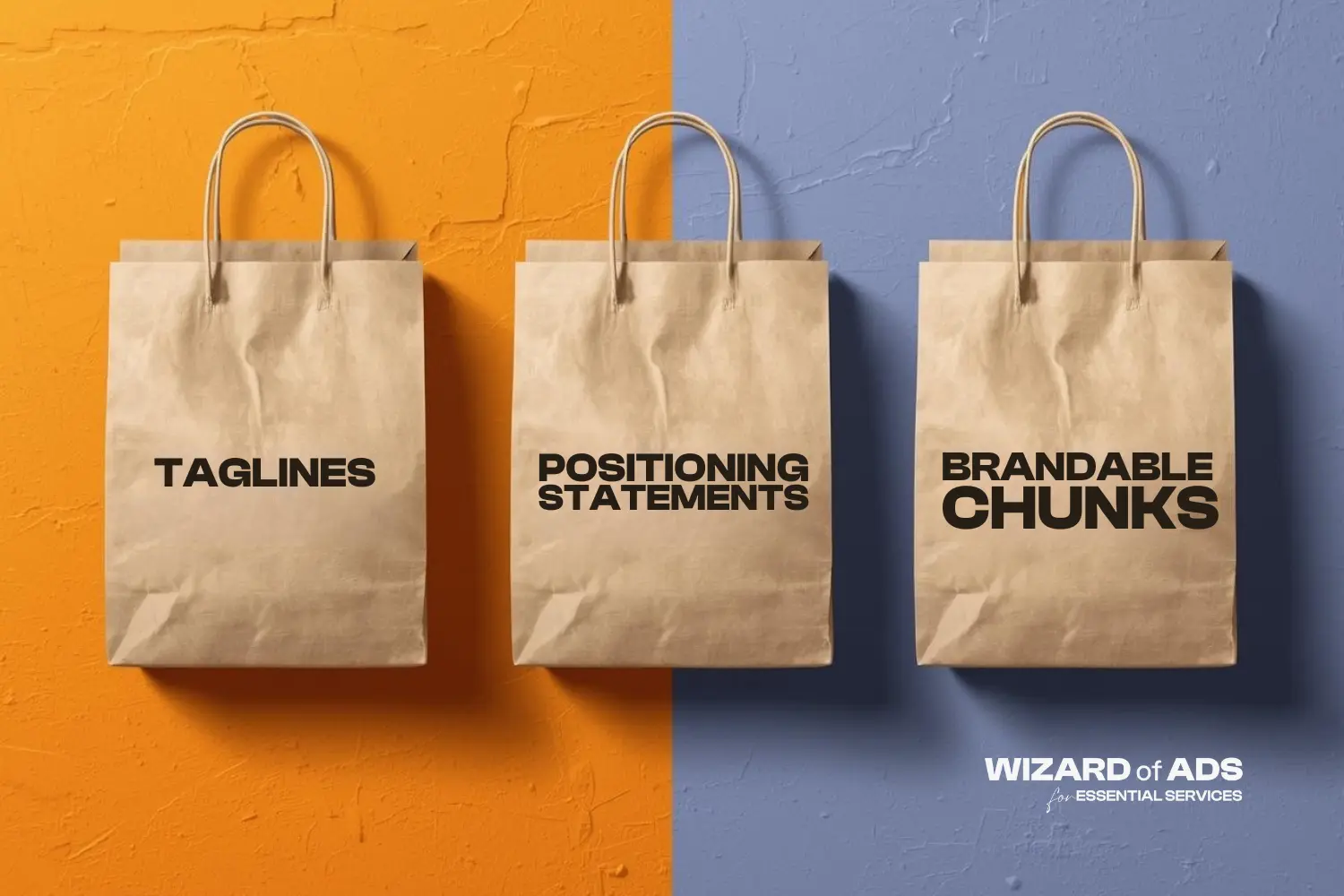
.webp)
.webp)
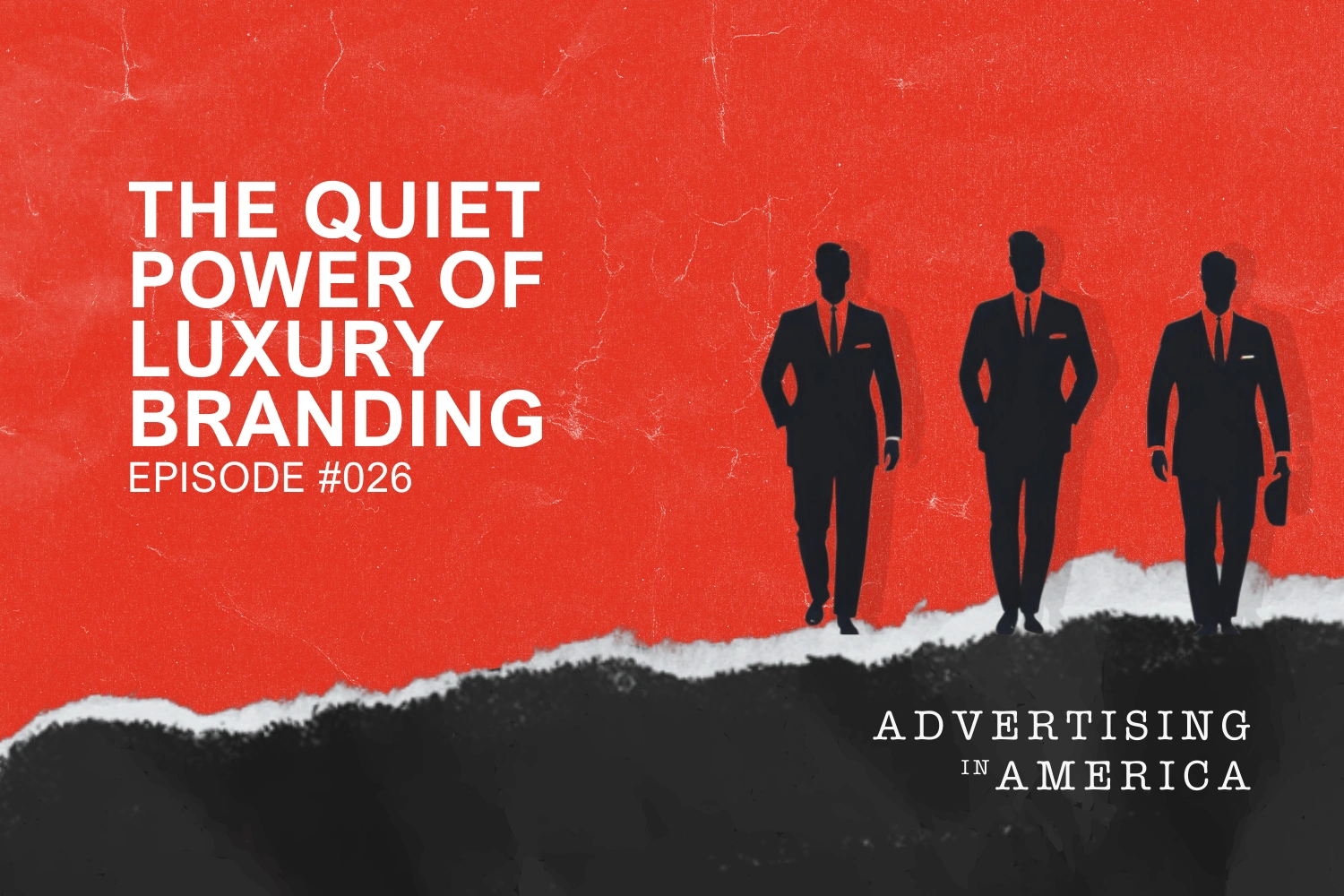
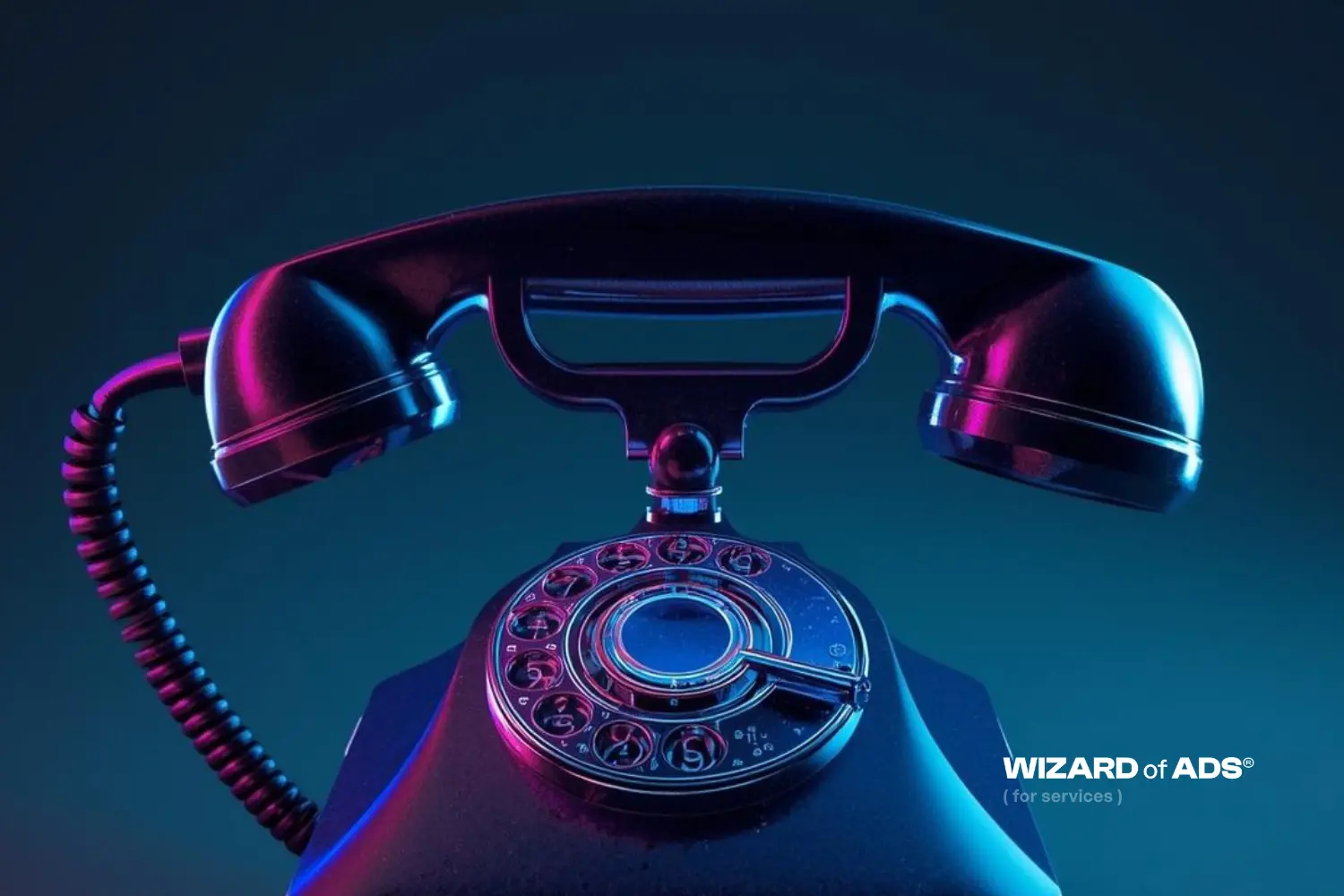
.webp)
.webp)
